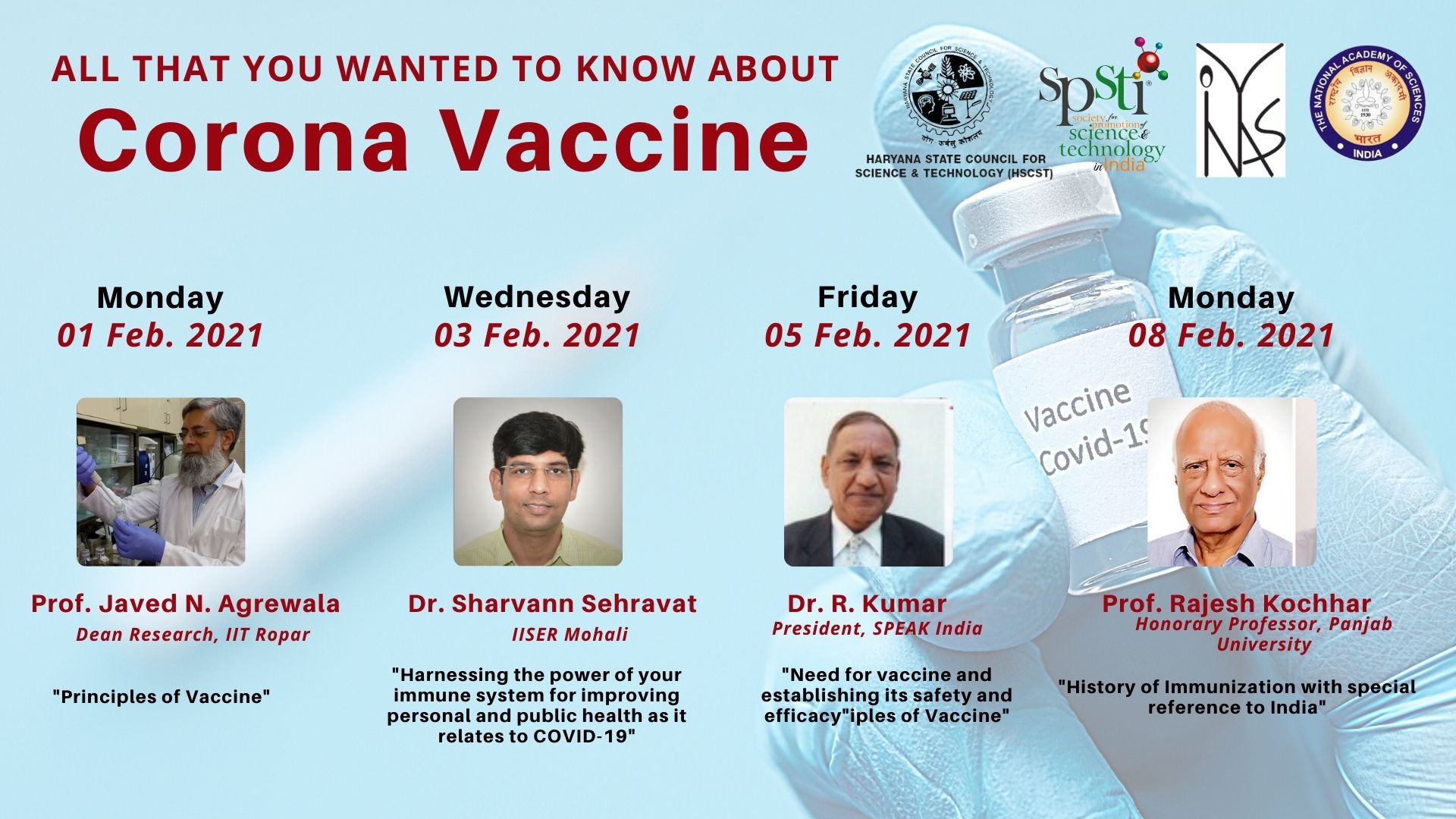The Society for Promotion of Science of Science & Technology in India (SPSTI), in association with Indian National Young Academy of Sciences and Chandigarh Chapter of the National Academy of Sciences, India with support from Haryana State Council for Science, Innovation and Technology has organised a series of talk on “All you want to know about Corona vaccine”. The first session of the series was conducted on “Principles of Vaccines” on February 01, 2021 at 2.00 pm through online mode. The session was attended by more than 50 participants on the zoom and about 405 viewed the same on the Facebook page of SPSTI.
The session steered with the introduction by Prof. Keya Dharamvir. Dr. Amit Tuli gave the opening remarks and introduced the speaker, Prof. Javed Agrewala. Prof. Agrewala is Dean Research at Indian Institute of Technology (IIT), Ropar.
Prof. Agrewala started with an introduction about vaccines as an infection agent preparation, administered into a person to induce long-lasting protective immunity, to prevent disease caused by the pathogen. Sharing importance of vaccine, he quoted the deaths of millions of people around the globe at different point of times due to various deadly diseases like smallpox, Spanish flu, black death, typhus, plague, cholera, malaria, AIDS and latest COVID-19, which till date has infected more than 103 million people and has cost lives of nearly 22 lakh people. Further he elaborated on the mechanism of vaccine, where the immune system recognizes a vaccine agent as foreign again and destroys it, developing memory. So when the pathogen infects the individual, the immune system recognizes it and acts more efficiently as it already has a memory to fight against the pathogen. He further discussed the history of vaccine starting from Turks who practiced variolation, and Lady Mary Wortley Montagu who was a British woman, got her children inoculated with fluid from lesions of mild cases of smallpox, though this process was much safer. Subsequently, Edward Jenner developed a safer way of vaccination by using secretion of cowpox in place of smallpox and coined the term ‘vaccination’. Later Louis Pasteur developed vaccines for anthrax and rabies. At present there are vaccines for about 26 infectious diseases, saving over 2 million children every year. Vaccines have almost wiped off measles and polio. He further talked about active and passive immunity and types of vaccines including live, killed, subunit, recombinant, synthetic peptide, DNA and edible vaccines. He also talked about leading COVID-19 vaccines. He also threw light on various phases of vaccine development. He said a right kind of vaccine is one which illicit right immune response, protects and generates long-lasting memory cells, adaptable to mass vaccination, has long shelf-life and minimum side-effects along with being cost-effective. He said there should not be cutting corners in any way, when it comes to developing a safe and effective vaccine.
The session was much appreciated by the audience and followed with questions about development and effectiveness of COVID-19 vaccine. Dr. Amit Tuli presented a vote of thanks to the speaker as well as the audience.

